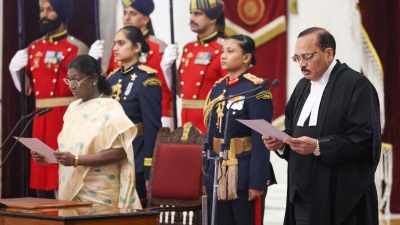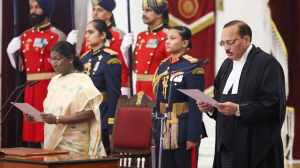Lockdown Reading: Rheea Mukherjee on the book she is reading now
Lockdown Reading is a series where authors will enlist the books they are reading (or not) during this time. This week, Rheea Mukherjee shares her experience.
 Rheea Mukherjee is the author of The Body Myth.
Rheea Mukherjee is the author of The Body Myth.
Deleted Histories- Why The Deoliwallahs: The True Story of the 1962 Chinese-Indian Internment is resonating so hard in quarantine.
Parts of Indian history will continue to surprise us if we start to dig further from the broad-stroke notions of what ‘Indian History’ and ‘Indians’ are. In 1962, during the Indo-Chinese war in 1962, 3,000 Chinese-Indians were incarcerated in a dilapidated WW2 POW camp in Deoli Rajasthan. I learn this by reading The Deoliwallahs (Pan Macmillian) by Joy Ma and Dilip D’Souza, which is an extraordinary merging of personal narrative and historical fact.
The links that bind us in a nation like India can only illicit awe, that is if your willing to think about what the essence of real diversity is. It’s superficial today, to simply say we come from different cultures, religions, classes, and castes. We imply by this that we are static in our circles but removed from other experience, which is true to a large extent, on a physical level. But how much of what we do, say, eat, and think come from the cross-bred notions of our diversity? What are the repercussions of deleting histories from contemporary ideas about the past?
These are the books Annie Zaidi is trying to read during lockdown.
I, like many middle and upper-middle-class Indians, am stuck in a new kind of cycle. Today, we’re seeing our homes in a new light. A space to binge-watch, a place to constantly clean, cook for. The paranoia to be accounted for. The stillness outside is a miracle. But by the time we’ve accounted for this notion and recapped the memory of what was ‘normal’ just a few weeks ago, we’re back with a new uncertain sunrise. How long will this go on for?
As we face the repercussions of massive inequality in our country, I find this book, The Deoliwallahs, especially important. Hidden stories via personal narratives have a way of becoming so potent and clear at a time like this. The book allows us to see how we repeat so many evils, like the fact that thousands of people; Chinese-Indians and ‘Chineselooking people’ were imprisoned for being ‘spies’. And this persecution was made so much easier because of their otherisation.
As we look into the communities of Chinese Indians, especially in Bengal and Assam, we see how they have been stitched in our fabric, our history, our food, and our memories for so long. A book that allows you to see how quickly we can otherise and use public paranoia to facilitate persecution, is one that can do powerful things for our collective consciousness
today. One that makes you feel like your life is actually the result of an ocean of lived experiences and stories from the past.
One that might make you walk out, in an ideal post-COVID world, more willing to connect and want to protect all that we’ve created together.
(Lockdown Reading is a series where authors will enlist the books they are reading (or not) during this time. Rheea Mukherjee is the author of The Body Myth)






- 01
- 02
- 03
- 04
- 05

























